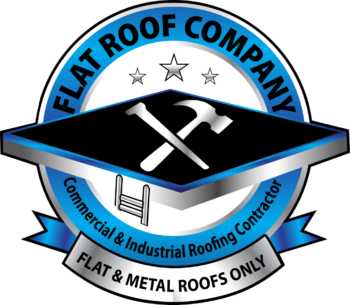Baltimore, MD is known for its vibrant history, bustling harbor, and diverse climate. While its location on the Chesapeake Bay makes it a beautiful place to live and do business, the weather in Baltimore also presents unique challenges for commercial property owners, especially when it comes to roofing. A commercial roof is a major investment, and its lifespan can be greatly influenced by local weather conditions. Understanding how Baltimore’s weather affects roofing systems can help business owners make informed decisions about maintenance, repairs, and replacements.
Seasonal Weather Patterns in Baltimore
Baltimore experiences all four seasons, with hot, humid summers, cold winters, and unpredictable spring and fall transitions. Each season brings specific stressors to commercial roofing systems:
- Summer: High humidity, intense UV rays, and thunderstorms.
- Winter: Snowfall, ice, freezing temperatures, and occasional nor’easters.
- Spring & Fall: Rapid temperature swings, heavy rain, and strong winds.
These fluctuating weather conditions create wear and tear on roofing materials, shortening their lifespan if not properly managed.
Heat and UV Exposure
During the summer months, Baltimore often sees temperatures climb into the 90s with high humidity levels. Commercial roofs, especially flat or low-slope designs, absorb direct sunlight for hours each day. This constant exposure to UV rays can cause roofing materials to dry out, crack, or blister.
- Asphalt-based roofing may soften and deteriorate.
- Single-ply membranes like TPO or EPDM may weaken and lose flexibility.
- Metal roofs can expand in extreme heat, putting stress on seams and fasteners.
Over time, this sun damage leads to leaks and reduces the overall durability of the roof. Installing reflective coatings or “cool roof” systems can help mitigate UV-related damage.
Heavy Rain and Moisture
Baltimore receives an average of 42 inches of rainfall per year, much of it concentrated during spring and summer thunderstorms. For commercial buildings with flat roofs, this creates a major concern, standing water.
Pooling water can:
- Seep into tiny cracks, causing leaks.
- Add excess weight to the roof structure.
- Accelerate the breakdown of roofing membranes.
Moisture also encourages mold and algae growth, which not only shortens the roof’s lifespan but can also create indoor air quality issues for tenants or employees. Proper drainage systems and regular inspections are crucial for managing water damage.
Snow, Ice, and Freeze-Thaw Cycles
While Baltimore winters are not as severe as in northern states, snowfall and freezing temperatures still pose risks to commercial roofs. Snow accumulation adds weight, and when temperatures fluctuate, freeze-thaw cycles occur.
This process causes water to seep into cracks and expand as it freezes, widening the damage over time. Ice dams, which form when melting snow refreezes near roof edges, can trap water and force it under roofing materials, leading to leaks and structural stress.
Roofs made of materials prone to cracking under cold stress, like some types of asphalt, are especially vulnerable. Insulation, proper drainage, and winter maintenance can extend the roof’s life.
Wind and Storm Damage
Baltimore’s coastal location makes it susceptible to storms, including remnants of hurricanes, nor’easters, and strong wind events. High winds can tear away roofing membranes, lift shingles, or loosen flashing around vents and HVAC units.
For commercial buildings with large roof surfaces, wind damage can be extensive. Even minor storms may compromise seams, leading to slow leaks that worsen over time. Choosing wind-resistant materials and having a professional roofing contractor inspect after major storms helps prevent small problems from becoming costly repairs.
Humidity and Condensation
High humidity is a year-round factor in Baltimore, but it is especially intense during summer. This humidity increases the risk of condensation forming beneath roofing membranes, particularly if the roof lacks proper ventilation. Over time, trapped moisture can deteriorate insulation, corrode metal decking, and create conditions for mold growth.
A roofing system designed with proper vapor barriers and insulation can prevent moisture buildup and extend the roof’s performance.
Air Pollution and Salt Exposure
Baltimore’s urban and coastal environment exposes commercial roofs to pollutants and salt in the air. Salt particles carried from the Chesapeake Bay can corrode metal roofing components, while pollution contributes to the breakdown of roofing membranes. Business owners near the waterfront or industrial areas may see faster deterioration and should consider protective coatings or materials designed to resist corrosion.
Extending the Lifespan of Commercial Roofs in Baltimore
While the weather in Baltimore poses many challenges, proactive measures can help extend the life of your commercial roof:
- Regular Inspections – Schedule professional roof inspections at least twice a year and after major storms.
- Preventative Maintenance – Address small issues like cracked flashing, clogged drains, or minor punctures before they become bigger problems.
- Invest in Quality Materials – Choose roofing materials designed for Baltimore’s climate, such as TPO for heat reflection or metal with protective coatings.
- Install Proper Drainage Systems – Ensure water flows off the roof quickly to prevent ponding.
- Apply Roof Coatings – Reflective or protective coatings can reduce UV damage and slow material breakdown.
- Work with Local Experts – A commercial roofing contractor in Baltimore understands the local weather conditions and can recommend solutions tailored to your property.
Final Thoughts
Baltimore’s diverse climate, hot summers, wet springs, cold winters, and unpredictable storms, takes a toll on commercial roofs. Heat, UV rays, heavy rain, snow, ice, wind, and humidity all contribute to wear and tear, ultimately shortening the lifespan of roofing systems.
The good news is that with regular maintenance, timely repairs, and the right materials, commercial property owners in Baltimore can protect their investment and significantly extend the life of their roofs. Partnering with a trusted commercial roofing contractor in Baltimore, MD ensures your roof is ready to withstand the challenges of the local climate, keeping your business safe, efficient, and well-protected year after year.
